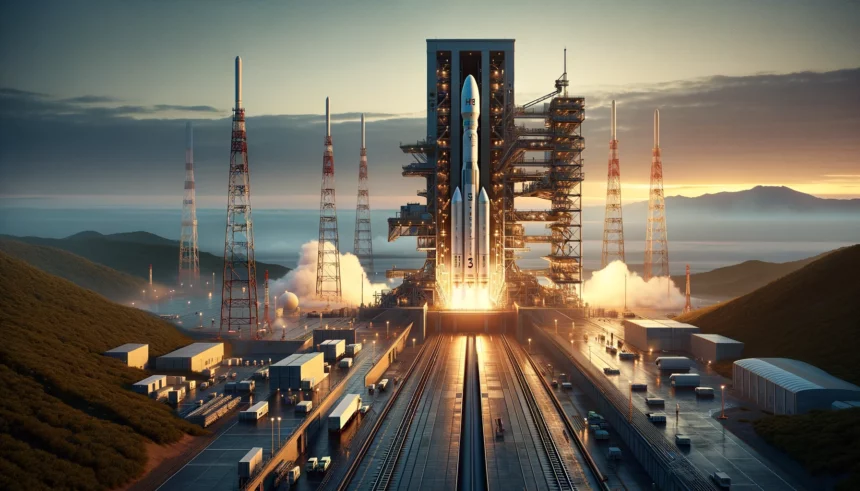Japan is gearing up for another attempt to launch its H3 rocket this weekend, aiming to bolster its space program’s standing after a failed first flight last year. The Japan Aerospace Exploration Agency (JAXA), in partnership with Mitsubishi Heavy Industries, has scheduled the launch for Saturday from the Tanegashima Space Center, following a delay due to weather concerns.
The H3 rocket, designed to halve the launch costs of its predecessor, the H-IIA, faced a setback in its debut when a second-stage engine failure necessitated the destruction of the rocket midflight. Despite this, recent successful H-IIA launches have revived hopes for the H3’s performance.
The launch is pivotal for Japan, not only to demonstrate its satellite launch capabilities but also to underscore its strategic space collaboration with the United States amidst growing geopolitical tensions with China. “For Japan, the H3’s success is crucial to prove to the world that it is capable of launching satellites continuously,” noted Kazuto Suzuki, a space policy expert at the University of Tokyo.
Saturday’s mission will carry a dummy payload designed to simulate a satellite, alongside two earth observation micro-satellites from Canon Electronics and Seiren. The H3’s development aimed at increasing payload capacity while reducing costs through simpler designs and the use of automotive-grade electronics.
This launch is part of Japan’s broader strategy to secure cost-effective, independent access to space, supporting more frequent and ambitious space missions. The H3 is expected to play a significant role in future lunar and international space exploration projects, including the Japan-India LUPEX project and the U.S.-led Artemis moon program.
The global satellite launch market has evolved rapidly, with players like SpaceX’s Falcon 9 and upcoming launches from the European Space Agency and United Launch Alliance reshaping the competitive landscape. JAXA acknowledges the need for “various and continual efforts” to meet market demands and maintain competitiveness.
Japan’s approach to space exploration, characterized by meticulous error elimination and cautious development, contrasts with the more agile strategies of some international counterparts. This methodical process, while slower, is deemed the most reliable path to success in Japan’s space endeavors.
As Japan prepares for the H3 launch, the space sector watches closely, anticipating the impact of this mission on Japan’s future in global space exploration and its position in the increasingly competitive launch services market.
















